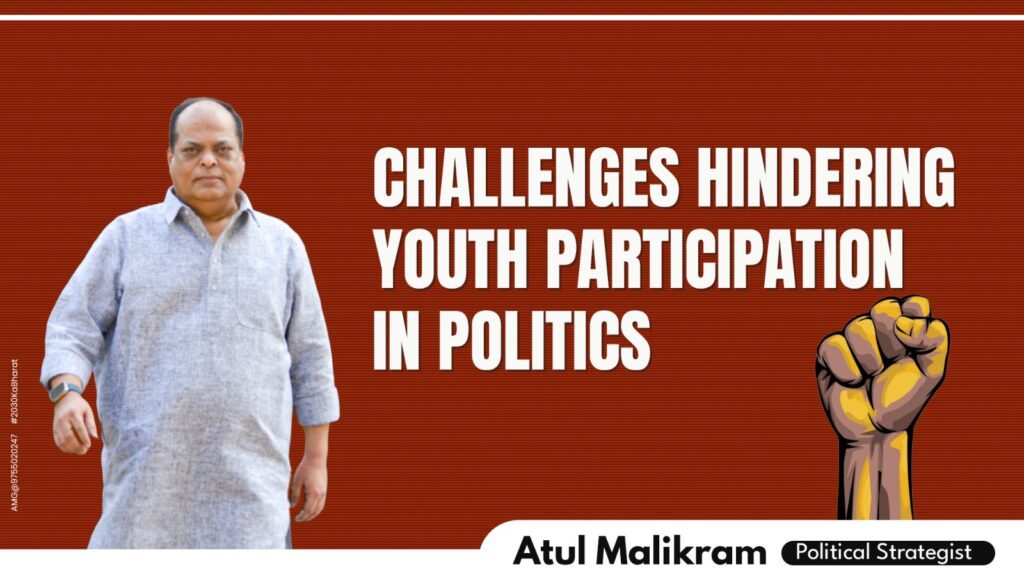In the pursuit of a truly representative political system, the inclusion of all segments of society is paramount. Unfortunately, the challenges faced by young people in engaging with political processes present a significant obstacle to achieving this inclusivity. When disenfranchised or disengaged, the youth become a sizable portion of the population without a substantial voice or influence in decisions that profoundly impact their lives. The consequences extend beyond individual disenfranchisement, ultimately undermining the representativeness of political systems. Challenges of youth participation in politics persist as a formidable obstacle to achieving a truly inclusive and representative political system
Barriers to Meaningful Participation:
To foster lasting change, it is imperative that young people actively participate in formal political processes and contribute to shaping the present and future political landscape. Inclusive political participation is not just a fundamental democratic right; it is also instrumental in constructing stable, peaceful societies and crafting policies that cater to the specific needs of younger generations. However, several challenges impede the realization of these ideals.
Knowledge and Capacity Gaps:
For meaningful participation at all levels, young people need to be equipped with the knowledge of their rights and the capacity to engage in political processes. Lack of awareness and understanding of these fundamental aspects often serves as a barrier, hindering their effective involvement in decision-making.
Disempowerment and Perceived Ineffectiveness:
When obstacles obstruct formal and institutionalized political participation, young individuals can quickly feel disempowered. The prevailing belief that their voices won’t be heard or taken seriously exacerbates this issue. This sense of futility creates a cycle where politicians may lose interest in responding to the aspirations of young people, leading to their increasing exclusion from critical decision-making processes.
Read Also: Youth and politics: Challenges faced by youth in Indian politics
Circular Challenges:
The circular nature of these challenges becomes evident as politicians may neglect to address the concerns of young people if they don’t perceive them as a significant voting bloc. This further marginalizes the youth from participating in debates on socio-economic and political issues, despite their acute awareness of demands for social equity, justice, environmental protection, and cultural diversity.
Implications for Emerging Democracies:
In new and emerging democracies, the inclusion of young people in formal political processes is vital from the outset. Young individuals can breathe life into democratic values and challenge authoritarian practices. However, exclusion from formal decision-making procedures after playing a pivotal role in protests against authoritarian regimes can breed frustration, potentially destabilizing democratization and fueling conflict dynamics.
Role of Electoral Management Bodies (EMBs):
Electoral stakeholders, including EMBs, play a crucial role in promoting young people’s participation in formal decision-making processes. To be effective in this role, a comprehensive understanding of the interconnected nature of obstacles faced by young people is necessary. By addressing these challenges collaboratively, stakeholders can work towards fostering an inclusive and representative political landscape that truly reflects the aspirations of all segments of society.


Pingback: How Youth Perceive & Influence Leadership in Indian Politics
Pingback: Fostering Change: Understanding the Crucial Importance of Youth Participation in Politics – Youth Political Engagement
Pingback: Empowering India's Future: Role of Youth in Mainstream Politics